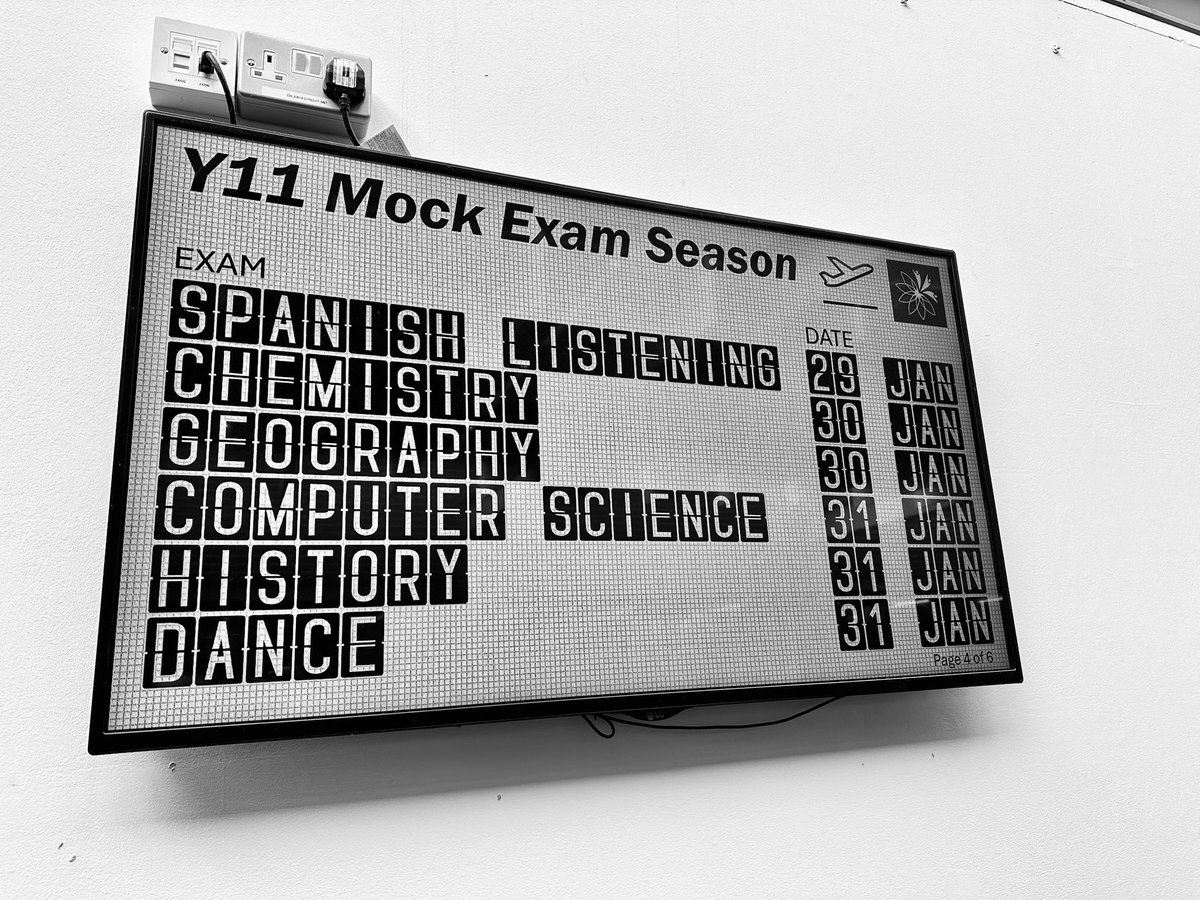Curriculum Overview
The overarching aim of Harris Garrard Academy is to end cycles of poverty and disadvantage and improve the life chances for all students. By doing this, we improve the life of our local community.
This page contains an overview of our curriculum across all Key Stages. Details of the curriculum for each subject (for primary, secondary and sixth form) can be viewed on our Subjects pages. Our curriculum policy can be downloaded from the Teaching and Learning page. For further information about the curriculum please contact Chris Simmons on c.sommins@harrisgarrard.org.uk or 0208 320 4800.
“Even the knowledge of my own fallibility cannot keep me from making mistakes. Only when I fall do I get up again”. Vincent Van Gogh
 The purpose of our curriculum
The purpose of our curriculum
We begin with the principle that all children are equal and have an equal entitlement to knowledge. The inventive design of our curriculum and its high-quality implementation are integral to our core values at the academy, every child, every day.
Knowledge in isolation from life experience has limited value and impact. Poorly-sequenced knowledge can cause uncertainty and confusion. We believe that knowledge must be embedded, developed and reinforced to ensure that our students use their knowledge to make informed lifelong decisions.
As they progress through the academy, students’ knowledge-application and wisdom grow exponentially, teaching them new independence, resilience and character at every stage of their development.
We encourage students and staff not to be afraid to make mistakes. Life is a journey and we learn new knowledge and new application techniques after every mistake we make.
We firmly believe that our curriculum not only develops life knowledge in all our students but teaches them how best to use this knowledge throughout their lives.
Continuity of an all-through curriculum
Every half-term our primary and secondary subject leads meet and discuss their curriculum strengths, weaknesses and really get to know how the other operates.
This is a great advantage of being an 'all-through' school, teaching students from reception to Year 13. It means that we get a true understanding of the journey from Year 6 to 7, in particular, as well as the whole primary and secondary experience.
It also ensures that student progress isn’t lost when students arrive in Year 7, as secondary teachers have a clear understanding of the curriculum journey from primary to secondary, as well as the high academic achievements in Year 6.
Staff also agree when primary and secondary teachers will observe each other teaching their respective subjects, to see the implementation of the curriculum in action.
Character is key
Our curriculum and education provision aim to develop the following character traits in our students:
- Determined resilience
- Aspirational work ethic
- Moral awareness and tolerance
- Emotional capacity and understanding
- Fulfilment and enjoyment
Find out more about our character education.
Curriculum choices
The purpose of this academy, and the curriculum it provides, are truly intertwined. We do not believe in pre-determined curriculum pathways that can limit a student’s choice based on their ability, characteristics or background.
 We passionately believe in giving students the information and knowledge to make informed decisions about their curriculum entitlement, supported through comprehensive careers guidance at pivotal times in a child’s life.
We passionately believe in giving students the information and knowledge to make informed decisions about their curriculum entitlement, supported through comprehensive careers guidance at pivotal times in a child’s life.
High quality teaching is the medium by which skills, core knowledge and applied knowledge can be dissipated through a well-sequenced curriculum model. The nature of the Harris Federation makes us collaborative, and this collaboration of subject specialists and researchers means our students benefit from the very highest quality in teaching and the most powerful knowledge. It also enables us to ensure that curriculum knowledge and understanding of our teaching and support staff is central to the personalised and continued professional development that all our staff receive to ensure it has impact in the classroom, for every child, every day.
Our curriculum, then, becomes a deliberate and explicit guarantor of equality as we work to close the limits to opportunity that exist in society. We ensure all our students have access to a broad and balanced body of knowledge regardless of demographics and starting points. We harness the expertise from within our Federation across primary and secondary phases to develop a challenging and rich ‘all-through’ curriculum model, whilst systematically sharing best practice across academies, phases and the wider Federation.
Challenging and stimulating
The high expectations we have of every single member of staff and the school community drive forward this mission to open opportunities for all young people in an area of deep disadvantage. The collaborative aims of the Federation and our academy mean we can draw on our understanding of the local context to create challenging and stimulating lessons and activities.
Each subject discipline has its own curriculum document which has been developed by the academic research communities we have built. The subject specialist consultants work in tandem with subject leaders in each academy for each phase. There are high expectations of subject knowledge from teachers so alongside these documents there is a commitment to providing regular high-quality subject-specific training for all teachers during the year. All our teachers are encouraged to be readers and researchers into their own subject discipline.
The aims and principles of our curriculum
Educational Success: Every Child, Every Day
 To provide all students with opportunities to access and engage with the best that has been thought and said, but also to help students comprehend that while knowledge is powerful it is also insecure, contested and evolving. We encourage our students to see themselves as contributing to scholarship.
To provide all students with opportunities to access and engage with the best that has been thought and said, but also to help students comprehend that while knowledge is powerful it is also insecure, contested and evolving. We encourage our students to see themselves as contributing to scholarship.
We secure concepts in English and Mathematics in early phases and this acts as a gateway to acquiring core knowledge in a rich range of subjects such that we develop students’ expertise within those individual subject disciplines.
An enriched vocabulary enables a better understanding of concepts and ideas and we facilitate access to knowledge beyond our students’ ordinary daily experiences. We do this by expanding their cultural capital and the breadth of their vocabulary. Children are exposed to a variety of texts both fiction and non-fiction, a wide range of creative arts and thoughtfully-planned learning outside the classroom.
We recognise that “the curriculum” is not just a timetable and that engagement in co-curricular opportunities is encouraged at every stage through everything from the co-curricular after school programme, Army Cadets, The Duke of Edinburgh Awards, Character Programme, the Harris Experience, the Federation Sports Day and the events that give platforms for all the talents.
The Harris Garrard Academy drives forward curriculum pedagogy with a level of demand which develops:
- scholarly and physical and emotional stamina and rewards resilience and resourcefulness
- opportunities for deeper conceptual understanding through enquiry, discussion and debate of knowledge
Principles of curriculum design and sequencing at HGA

Sequencing the Curriculum for Mastery
 At Harris Garrard we have carefully mapped out our schemes of work for every year group for the entire school year. Underpinning our schemes of work (long-term and medium-term plans) is the application of spacing and interleaving, which we believe helps pupils to commit knowledge and skills into their long-term memories as well as achieve subject mastery.
At Harris Garrard we have carefully mapped out our schemes of work for every year group for the entire school year. Underpinning our schemes of work (long-term and medium-term plans) is the application of spacing and interleaving, which we believe helps pupils to commit knowledge and skills into their long-term memories as well as achieve subject mastery.
Interleaving
Learning/knowledge acquisition is sequenced purposefully so that similar concepts are interspersed with different pieces of knowledge, rather than being consecutive. At Harris Garrard we believe this is the best way for learning to be embedded into long term memory. This method also improves pupils’ abilities to apply many pieces of knowledge to one task, which pupils usually find very difficult.
Spacing
A second method we use to help pupils commit knowledge and skills to memory is the spacing effect. This refers to incorporating time delays between learning and practise, leading to better educational performance over time. This means that pupils learn something new, then have more opportunities to re-visit that learning and practise it throughout the year. Pupils therefore do not have opportunities to forget, but also allows for mastery.
You'll find a long-term plan for each subject on our subject pages.
'Powerful Knowledge' conferences
Every student at Harris Garrard Academy has a chance to attend a 'Powerful Knowledge' Conference, held once a year for every student.
The conference is a way of sharing with students some strategies that will help them encode important information to their long-term memories and retrieve it when needed - whether that be in an exam, an interview, or simply a conversation.
We want to include our students in the discussion about cognitive science and how to learn. Techniques discussed include, for example, retrieval practice, dual coding, interleaving, spaced practice and elaboration. Download some sample 'Powerful Knowledge' presentations below from last academic year:
Powerful Knowledge Presentation (December 2022)
EBacc - an academic curriculum
As adults, we know that life can be demanding as we work our way through the ups and downs that it brings. Responsibility, character and resilience are so important as we face these varied challenges head on, whilst trying to remain positive, determined and aspirational.
A key element of this aspiration is ensuring that students have the opportunity to develop these core skills through a highly academic and challenging core curriculum which is blended with additional curriculum options that allow all students to access a range of qualifications. These qualifications will serve them well in life, whichever pathway they choose to take or door they decide to open.
Qualifications give students choices in life. They open doors and provide new opportunities and fulfilment. To achieve this vision we ensure that our curriculum is not shortened at Key Stage 3 and not narrowed at Key Stage 4.
Before the Harris Federation took over the academy, only 14% of students were regularly entered for the academic EBacc qualification. This, in our view, deprives children of opportunities and lowers their expectations.
The EBacc qualification involves students studying English, Maths, Science, History or Geography and a language. This is a very demanding set of curriculum subjects and has high level of expected knowledge development, retention and application. This curriculum intent will robustly challenge all students academically. For those students who do not study the full compilation of the EBacc subjects, they will all still study a very demanding compilation of core curriculum subjects which includes English, Maths, Science and either History or Geography. This again, will require a high level of knowledge development, retention and application when covering the curriculum intent.
The table below shows current and projected entries into the EBacc qualification.
|
Cohort |
% of cohort entered for EBACC |
Number of subjects studied |
|
Year 11 in 2018-19 (Previous Cohort)
|
10.8% *Please see note above regarding curriculum in the predecessor school* |
Linguists study 10 subjects Non-linguists study 9 subjects |
|
Year 11 in 2019-20 (Previous Cohort) |
62% |
Linguists study 10 subjects Non-linguists study 9 subjects |
|
Year 11 in 2020-21 (Previous Cohort)
|
58.2% |
Linguists study 10 subjects Non-linguists study 9 subjects, or 10 if they study religious studies |
|
Year 11 in 2021-22 (Previous cohort)
|
77% |
Linguists study 10 subjects Non-linguists study 9 subjects, or 10 if they study religious studies
|
|
Year 11 in 2022-23 Current Year 11
|
82% |
Linguists study 10 subjects Non-linguists study 9 subjects |
|
Year 11 in 2023-24 Current Year 10
|
90% |
Linguists study 10 subjects Non-linguists study 9 subjects |
|
Year 11 in 2024-25 Current Year 9 |
90% |
Linguists study 10 subjects Non-linguists study 9 subjects |
The curriculum and the labour market
When designing the curriculum at Harris Garrard Academy we have taken into account the local and national contexts to ensure that students are able to access both the local and national economy. Our curriculum offers a combination of academic, vocational and co-curricular opportunities, allowing students to develop the knowledge and skills to access the local labour market if they wish to do so, or progress to university and beyond.
The following statistics show the percentages of people working in different sectors within Thamesmead and local area: Professional 16.7%; Elementary 15.9%; Elementary administration and service 14.4%; Caring, leisure and other service 12.9%; Administrative and secretarial 12.6%; Caring personal service 9.9%; Administrative 9.9%; Sales and customer service 9.6%; Associate professional and technical 9.4%; Process, plant and machine operatives 8.6%.
Find out more about our careers programme. Download our Local & National Employment Context for Curriculum Planning 2019-2022.
Details of the curriculum for each subject can be viewed on our Subjects pages. Our curriculum policy can be downloaded from the Teaching and Learning page.





















